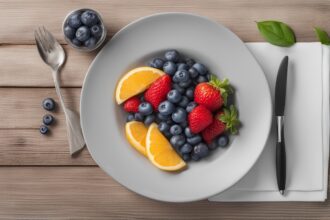Intermittent fasting (IF) has gained immense popularity as a dietary approach for weight management, improved metabolic health, and overall wellness. However, one critical aspect often overlooked during intermittent fasting is hydration. Maintaining balanced hydration during intermittent fasting is essential to support bodily functions, prevent dehydration, and enhance the benefits of fasting. In this comprehensive guide, we’ll explore how to achieve optimal hydration while fasting, address common challenges, and provide practical tips to ensure your body stays nourished with fluids during fasting windows.
Why Balanced Hydration Matters During Intermittent Fasting
Balanced hydration during intermittent fasting is vital because the body relies on water to perform essential functions such as regulating temperature, aiding digestion, and flushing out toxins. When fasting, especially for extended periods, the absence of food intake can sometimes lead to reduced water intake, as many people rely on meals to prompt drinking. Dehydration can cause fatigue, headaches, dizziness, and even impair cognitive function, which can derail your fasting goals.
Water also plays a role in supporting autophagy—a process often associated with fasting where the body cleans out damaged cells and regenerates new ones. Without proper hydration, this process may be less effective. Therefore, prioritizing hydration ensures that your body can handle the stress of fasting while maximizing its benefits.
Understanding Fluid Needs During Fasting Windows
During fasting windows, your body’s fluid needs do not diminish, even though you’re not consuming food. The average adult requires about 2–3 liters of water per day, depending on factors like age, weight, activity level, and climate. While fasting, you may not get water from food sources like fruits and vegetables, so it’s crucial to compensate by drinking enough fluids during non-fasting periods or, if allowed, during fasting windows with zero-calorie options like water or herbal tea.
A common misconception is that fasting means abstaining from all intake, including water. However, most intermittent fasting protocols, such as the 16:8 method, encourage drinking water and other non-caloric beverages during fasting hours to maintain balanced hydration during intermittent fasting. For more information on different fasting methods, check out our detailed guide on Intermittent Fasting Methods.
Best Hydration Practices for Intermittent Fasting
To achieve balanced hydration during intermittent fasting, follow these practical strategies:
- Start Your Day with Water: Upon waking, drink a large glass of water to kickstart hydration, especially if your fasting window begins in the morning.
- Carry a Reusable Water Bottle: Keep water accessible at all times to remind yourself to sip throughout the day, even during fasting periods.
- Incorporate Electrolytes: During longer fasts, adding a pinch of salt to your water or consuming an electrolyte supplement (without calories) can help maintain sodium and potassium levels.
- Opt for Herbal Teas: If plain water feels monotonous, unsweetened herbal teas can provide variety while keeping you hydrated without breaking your fast.
- Monitor Urine Color: A pale yellow color typically indicates good hydration, while dark yellow or amber suggests you need to drink more fluids.
These practices can help ensure you’re meeting your hydration needs. For additional tips on maintaining energy during fasting, read our post on Energy-Boosting Fasting Tips.
Common Hydration Challenges During Fasting and How to Overcome Them
While striving for balanced hydration during intermittent fasting, you may encounter challenges such as forgetting to drink, feeling bloated from too much water, or misinterpreting thirst as hunger. Here’s how to address these issues:
- Forgetting to Drink: Set reminders on your phone or use hydration tracking apps to prompt regular water intake.
- Bloating: Avoid chugging large amounts of water at once. Instead, sip small amounts consistently throughout the day to prevent discomfort.
- Thirst vs. Hunger: Fasting can sometimes confuse the body’s signals. If you feel hungry during a fasting window, try drinking a glass of water first to see if thirst is the true culprit.
Understanding these challenges can make fasting more sustainable. If you’re new to fasting, our beginner’s guide on Beginner’s Guide to Fasting offers more insights into overcoming common hurdles.
What to Avoid for Balanced Hydration During Intermittent Fasting
While hydration is crucial, not all beverages are suitable during fasting windows if your goal is to maintain the benefits of IF. Avoid the following:
- Sugary Drinks: Sodas, juices, and sweetened teas can spike insulin levels and break your fast.
- Alcohol: Alcohol dehydrates the body and can interfere with the metabolic benefits of fasting.
- Caffeinated Beverages in Excess: While black coffee or tea is often permitted, excessive caffeine can act as a diuretic, leading to dehydration.
Stick to water, herbal teas, or electrolyte-infused water to stay on track. For a deeper dive into fasting-friendly beverages, explore our article on Fasting-Friendly Drinks.
Creating a Personalized Hydration Plan for Intermittent Fasting
Every individual’s hydration needs are unique, so creating a personalized plan for balanced hydration during intermittent fasting is key. Start by assessing your daily water intake outside of fasting and adjust based on your fasting schedule. For example, if you follow the 16:8 method (fasting for 16 hours, eating during an 8-hour window), aim to consume most of your water during the eating window while sipping small amounts during fasting hours to avoid dehydration.
Consider factors like exercise routines, as physical activity increases fluid loss through sweat. If you work out during a fasting window, hydrate before and after with electrolyte solutions if needed. For tailored advice on combining fasting with fitness, refer to our post on Fasting and Exercise.
Lastly, listen to your body. If you experience symptoms like dry mouth, fatigue, or headaches, increase your water intake and reassess your hydration strategy.
Disclaimer: The information provided in this article is for educational purposes only and should not be considered medical advice. Intermittent fasting and hydration practices may not be suitable for everyone, especially individuals with pre-existing medical conditions, pregnant or breastfeeding women, or those on specific medications. Always consult with a healthcare professional or dietitian before starting any fasting or hydration plan to ensure it aligns with your individual health needs.
References
- Mayo Clinic: Water – How Much Should You Drink Every Day?
- Harvard Health: Intermittent Fasting – Surprising Update
- NCBI: Effects of Intermittent Fasting on Health, Aging, and Disease
- WebMD: Water for Weight Loss Diet
- CDC: Water and Healthier Drinks
This content is for informational purposes only and not a substitute for professional advice.






